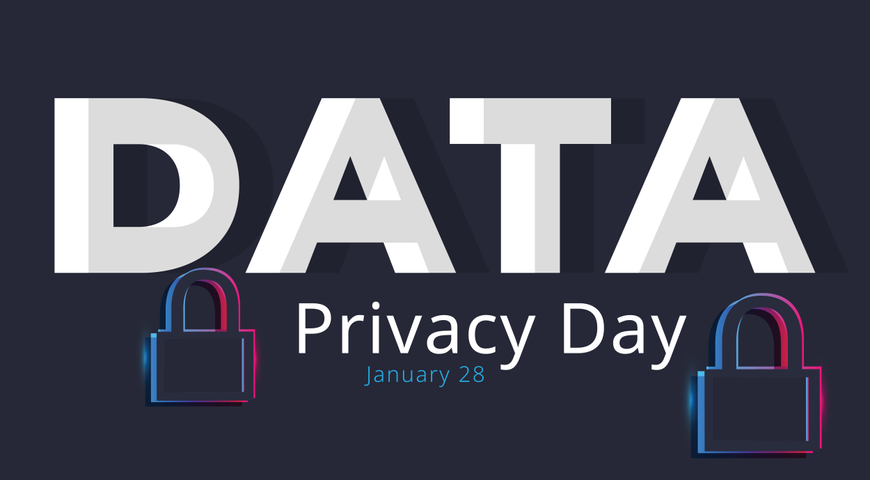
Introduction
As we step into the digital age, our lives become increasingly intertwined with technology, making the need for robust data protection more critical than ever. Data Privacy Day, observed annually on January 28, serves as a poignant reminder of the importance of safeguarding personal information in an era of heightened cyberthreats. This blog post will delve into the origins of Data Privacy Day, define the concept of data privacy, explore its growing importance amid escalating cyberthreats, discuss key regulations like GDPR, HIPAA, GLBA and ADPPA, highlight recent statistics reflecting consumer awareness, showcase Acronis' #CyberFit strategy, and conclude with reflections on the broader significance of this important day.
Origin of the holiday
Data Privacy Day, initially known as Data Protection Day, finds its roots in the Council of Europe's Convention 108, which was signed on January 28, 1981. The convention aimed to establish guidelines for the protection of individuals with regard to the processing of personal data. Recognizing the significance of this initiative, the United States officially embraced Data Privacy Day, emphasizing the importance of promoting awareness and education around data protection issues.
Data privacy defined
At its core, data privacy involves the responsible handling and protection of individuals' personal information. It encompasses the ethical and legal considerations surrounding the collection, storage, and use of data. Data privacy ensures that individuals have control over their personal information and safeguards them from unauthorized access, disclosure, alteration and destruction.
Data privacy's growing importance in a time of increased cyberthreats
In an era marked by rapid technological advancements, the threat landscape has evolved exponentially. Cyberthreats, including ransomware attacks, data breaches, and identity theft, pose significant risks to individuals and organizations alike. Data privacy plays a pivotal role in mitigating these risks, ensuring the confidentiality and integrity of sensitive information, and fostering trust in the digital space.
Data privacy regulations increasing
Governments and regulatory bodies worldwide are responding to the growing concerns around data privacy by implementing stringent regulations. Some key regulations that have significantly shaped the landscape are the General Data Protection Regulation (GDPR), the Health Insurance Portability and Accountability Act (HIPAA), the Gramm-Leach-Bliley Act (GLBA) and the American Data Privacy Protection Act (ADPPA).
GDPR: The General Data Protection Regulation (GDPR) is the toughest privacy and security law in the world. Though it was drafted and passed by the European Union (E.U.), it imposes obligations onto organizations anywhere, so long as they target or collect data related to people in the E.U.
HIPAA: HIPAA, enacted in 1996, focuses on safeguarding protected health information (PHI). It sets standards for the secure electronic transmission of healthcare data, ensuring the confidentiality, integrity, and availability of patients' sensitive information.
GLBA: The GLBA, passed in 1999, targets the financial sector. It mandates financial institutions to establish privacy policies and practices to protect consumers' non-public personal information, fostering transparency and accountability.
ADPPA: The ADPPA, a recent addition, is state-level legislation designed to create a comprehensive framework for data privacy in the United States. It reflects a growing trend toward enhancing individual rights and organizational responsibilities in the digital realm.
Recent statistics on consumer awareness
Recent statistics highlight a growing awareness among consumers regarding the threats to their personal data. With high-profile data breaches making headlines, individuals are becoming more conscious of the importance of data privacy. A survey conducted in preparation for Data Privacy Day 2024 reveals that a significant percentage of respondents expressed concerns about the security of their personal information, indicating a heightened sensitivity to the risks associated with digital interactions.
According to a recent survey conducted by stationX, the statistics bear out these concerns on the part of the public and organizations:
· 83% of consumers either agree or strongly agree with the statement, “These days, I think about whether I trust a company to keep my information safe before I buy something from them.”
· 64% of consumers say they have opted not to work with a business because of concerns about whether they would keep their personal data secure.
· 82% of consumers say they are highly concerned about how their data is collected and used.
· More than half of consumers (57%) worry that brands use their data beyond intended purposes.
· Companies that demonstrate responsible data practices benefit from an increase in purchase intent of 23% compared to companies that cannot demonstrate those practices.
· In 2023, 58% of consumers say they are worried about being “hacked and tracked” through their devices, up from 41% in 2022.
· 77% of internet users worldwide say they are worried about personal information being stolen.
· 75% of internet users worldwide say they are worried about personal information being used by companies for marketing purposes without permission.
· 68% of internet users worldwide say they are worried about personal information being used by the government without permission.
How Acronis provides a #CyberFit strategy
In the face of escalating cyberthreats, Acronis emerges as a stalwart defender of data integrity. The #CyberFit strategy, embraced by Acronis, transcends traditional data backup solutions. It encompasses a proactive approach to cyber protection, integrating data security, backup, and anti-malware measures to fortify defenses against evolving threats.
Acronis' #CyberFit strategy revolves around ensuring organizations and individuals are resilient, agile, and ready to confront the challenges of the digital landscape. By prioritizing data privacy and adopting cutting-edge technologies, Acronis empowers its clients to protect their digital assets effectively. This holistic approach positions Acronis as a trailblazer in the realm of cyber protection, providing a comprehensive shield against the ever-evolving cyberthreat landscape.
Concluding thoughts
As Data Privacy Day 2024 unfolds, it serves as a moment for collective reflection on our digital practices. The increasing importance of data privacy, underscored by growing cyberthreats and strengthened by regulations and innovative solutions, calls for a concerted effort to protect personal information. This day prompts us to reconsider how we collect, share, and use data, fostering a culture of responsible data stewardship.
In conclusion, Data Privacy Day is not merely a commemoration but a call to action. It prompts individuals, businesses and policymakers to collaborate in creating a safer digital environment. As we navigate the complexities of the digital frontier, let us embrace the principles of data privacy, advocate for robust regulations and adopt #CyberFit strategies to fortify our defenses. By doing so, we contribute to a future where the digital landscape is secure, transparent and respectful of individuals' privacy rights.
About Acronis
A Swiss company founded in Singapore in 2003, Acronis has 15 offices worldwide and employees in 50+ countries. Acronis Cyber Protect Cloud is available in 26 languages in 150 countries and is used by over 21,000 service providers to protect over 750,000 businesses.



